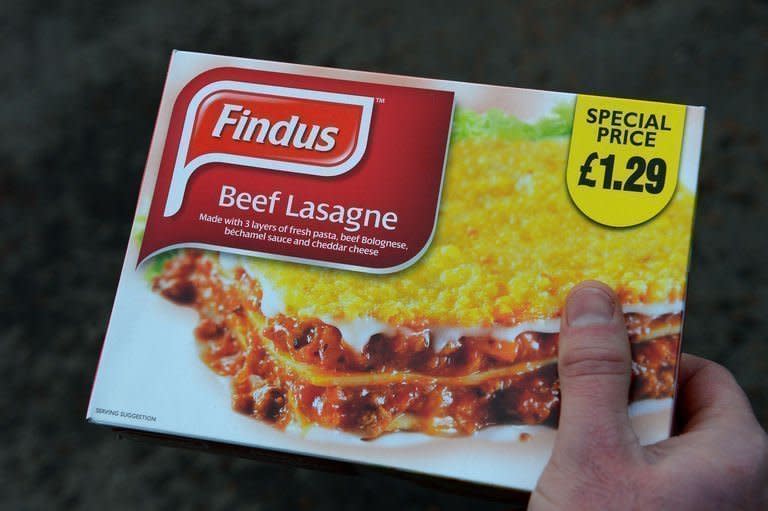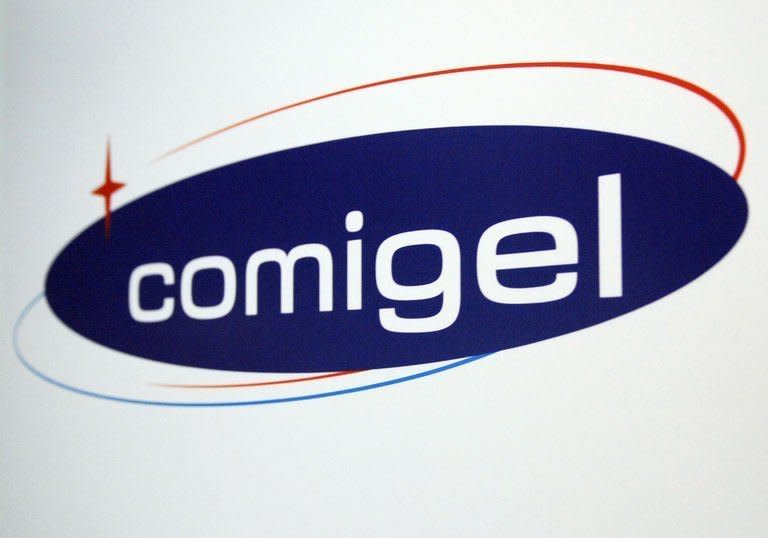Horsemeat scandal spreads as French retailers pull foods
The Europe-wide scandal over horsemeat sold as beef spread Sunday as six French retailers pulled products from their shelves and France promised to have the results of an urgent inquiry within days. A senior British lawmaker meanwhile upped the stakes by calling for a temporary ban on importing EU meat, as a French minister suggested London was threatening food safety standards by pushing for EU budget cuts. Several ranges of prepared food have been withdrawn in Britain, France and Sweden after it emerged that frozen food companies had been using horsemeat -- traced back to Romania -- instead of beef in making lasagnes and other pasta dishes, shepherd's pies and moussakas. Frozen food giant Findus has lodged a legal complaint in France after evidence showed the presence of horsemeat in its supply chain "was not accidental", while a French meat-processing firm has said it will sue its Romanian supplier. Highlighting the complexity of European food supply chains, the meat has been traced back from France through Cyprus and The Netherlands to Romanian abattoirs. Romanian officials have also announced an urgent inquiry. French retailers Auchan, Casino, Carrefour, Cora, Monoprix and Picard announced Sunday they were withdrawing products provided by Findus and French producer Comigel over the horsemeat concerns. In a statement through the FCD retail association, the retailers said the withdrawal was the result of "labelling non-compliance in regards to the nature of the meat" in the products. Consumer Affairs Minister Benoit Hamon said French authorities would have the preliminary results of their inquiry into the scandal by Wednesday. Hamon also told Le Parisien newspaper authorities "will not hesitate" to take legal action if there is evidence that companies were knowingly duping consumers. In Britain, where tests found that some frozen ready meals produced in mainland Europe and labelled as processed beef actually contained up to 100 percent horsemeat, pressure was mounting for the government to take action. Anne McIntosh, the head of the British parliament's food affairs scrutiny panel, called for a temporary ban on all EU meat imports. "I believe there should be a moratorium on the movement of all meat until such time as we can trace the source of the contamination and until we can establish whether there has been fraud," she said on BBC television. The scandal has had particular resonance in Britain, where eating horsemeat is considered taboo. British authorities have also said they are testing to see whether the horsemeat contains a veterinary drug that can be dangerous to humans. The Findus meals were assembled by Comigel using meat that was provided by Spanghero, a meat-processing company also based in France. Comigel supplies products to companies in 16 European countries. Spanghero in turn is said to have obtained the meat from Romania via a Cypriot dealer who had subcontracted the deal to a trader in The Netherlands. Hamon defended France's food safety checks, saying the system relies on producers and importers to properly identify their meat. "I can't put an official behind every piece of meat," Hamon said. He also took a sideswipe at Britain for seeking cuts in the European Union budget, saying reduced spending would affect food safety checks. "The British are just returning from Brussels where they defended a liberal budget that tends to reduce food safety checks," he said. Romania's agriculture ministry has said it would launch an inquiry into shipments of meat to France, but on Sunday Romanian food industry officials pointed the finger of blame at the French meat importer. "I find it hard to believe that a Romanian abattoir could have delivered horsemeat that was labelled beef" because of the controls in place, Dragos Frumoso, the head of Romania's food industry union, told AFP. Frumoso said it was up to the French importer to verify the quality of the meat it received. "If it did not make any protest when it received the meat to say that it was horse and not beef, then either it was an accomplice to the Romanian producer or it changed the labels afterwards," Frumoso said.




